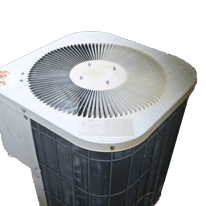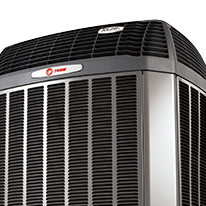Florida and Federal Tax Credits & Rebates
For HVAC, Solar & More
Discover Clean Energy Tax Credits & Rebates available for Florida consumers and enhance the efficiency of your home.
Use the tax calculator below to uncover Clean Energy Tax Credits & Rebates accessible to Florida consumers and boost your home's efficiency, including significant improvements through solar energy systems and heat pumps. The Inflation Reduction Act (IRA), put into effect by the U.S. government in August 2022, targets a reduction in greenhouse gas emissions by 40% by 2030, and has significantly influenced two main tax areas.
These areas are the Energy Efficient Home Improvement Tax Credit (25C) and the High Efficiency Electric Home Rebate Program (HEEHRP).
At Badger Bob's, we supply an extensive selection of ENERGY STAR® qualifying products that are applicable for these programs. Use the online calculator below to determine your eligibility. If you're looking for more details about the new tax credits & rebates, our expert team has exhaustively studied them and is prepared to guide you.
Central Air Conditioners • Heat Pumps • Ductless Systems • Water Heaters • Solar Energy Systems • Electric Vehicle Chargers • Electrical Panels • Duct Sealing & More
Frequently Asked Questions
Who is eligible for tax credits for energy-efficient products?
Homeowners, including renters for certain expenditures, who purchase energy and other efficient appliances and products are eligible for tax credits.
What is the process for consumers to claim the tax credit(s)?
To claim the tax credit(s), consumers need to fill out IRS Form 5695, following the instructions provided by the IRS, and include it when filing their tax return. It is important to include any relevant product receipts.
Are there any limits on what consumers can claim for tax credits?
Consumers can claim the same or varying credits year after year with new products purchased. However, some credits may have an annual limit, so it's important to review the specific requirements and limitations for each credit.
Which heating, cooling, and water heating products are eligible for tax credits?
The eligible products for tax credits include electric or natural gas heat pumps, electric or natural gas heat pump water heaters, central air conditioners, natural gas or propane or oil water heaters, and natural gas or propane or oil furnaces or hot water boilers that meet or exceed the specific efficiency tiers established by the Consortium for Energy Efficiency. Additionally, solar water heating products certified for performance by the Solar Rating Certification Corporation or a comparable entity endorsed by the state government are also eligible for tax credits.
SEER2: Save Even More on Utilities by Upgrading to a Higher-Efficiency Air Conditioner
By upgrading to a higher-efficiency air conditioner, you can experience significant monthly savings on your energy bills. Air conditioning units are rated based on their efficiency, measured by the Seasonal Energy Efficiency Ratio (SEER2) value. Choosing a system with a higher SEE2R value means greater energy efficiency.
Compared to older AC systems, which typically have SEER2 values ranging from 8 to 12, newer units boast SEER2 values of 14 to 25. These newer models are much more cost-effective to operate. To estimate the potential savings from upgrading your current AC system to a more efficient one, utilize the estimator tool provided below.
SEER2 VS ON A TON AIR CONDITIONER*

YOUR CURRENT A/C
consumes around
in electricity per year
VS

YOUR NEW A/C
will consume around
in electricity per year
Long Term Savings
5-YEAR
10-YEAR
15-YEAR
*Based on cents/KWh (average price in Sarasota, FL). Also based on yearly cooling hours average for Sarasota, FL
(Estimated with weather data from ASHRAE: 2019 ASHRAE, www.ashrae.org. Used with permission.) This calculator is only intended to give you a rough estimate. The savings are not guaranteed and depend on various factors.


